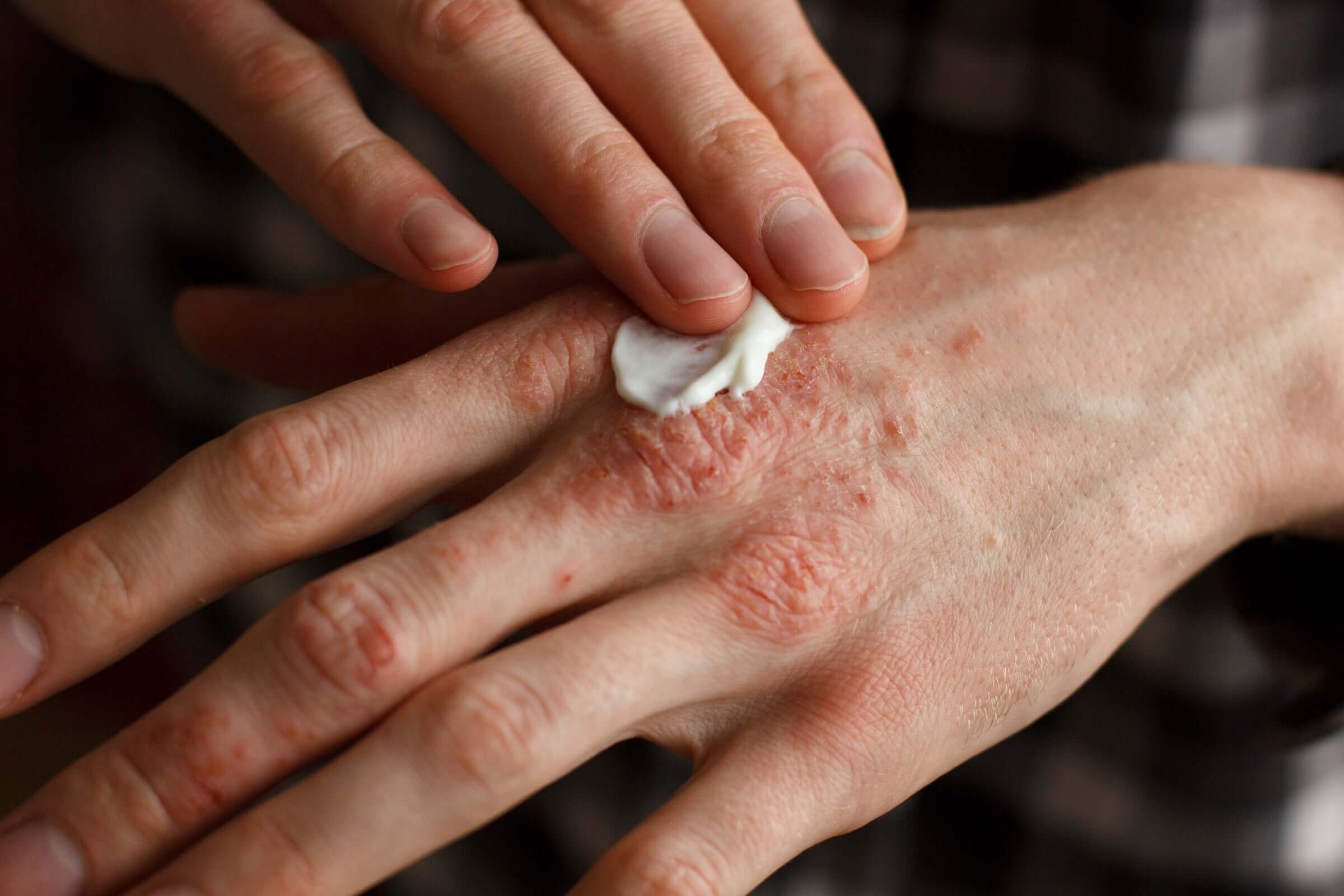The 10 Best Ingredients You Need For Inflamed Skin

Various factors such as sun allergy, heat rash, bacteria, irritating products, or a compromised skin barrier can lead to skin inflammation and redness. If your skin has been staging a lifelong rebellion, the last thing you'd fancy is introducing it to a slew of new products during its protest phase.
We understand that applying anything can turn your skin into a battleground, not to mention the stinging sensation! That's precisely why we've curated a list of soothing and anti-inflammatory ingredients to keep an eye out for when selecting skincare or bath products, ensuring they won't add to the woes of inflamed skin.
The 10 Best Ingredients For Inflamed Skin
1. Aloe Vera
Aloe vera is a time-tested ingredient for calming irritated skin. It has soothing properties and is known to promote healing, making it an excellent addition to skincare products for inflammation.
An article from Mount Sinai reported a study indicating that aloe vera gel exhibited anti-inflammatory effects surpassing those of 1% hydrocortisone cream or a placebo gel. Additionally, another study found that combining aloe vera gel with tretinoin proved more effective in treating acne than using tretinoin alone. This leads researchers to suggest that aloe vera gel could be a valuable resource in addressing inflammatory skin conditions, including ultraviolet-induced erythema.
2. CBD (Cannabidiol)
CBD, derived from the cannabis plant, has gained immense popularity for its potential anti-inflammatory properties. It interacts with our skin's endocannabinoid system, helping regulate various processes and reduce inflammation.
Preclinical findings suggest that applying CBD topically could be effective in addressing certain skin disorders, including eczema, psoriasis, pruritis, and various inflammatory conditions. According to an article at Cedars Sinai, Dr. Nima Gharavi, a dermatologist and skin cancer surgeon with the Cedars-Sinai Cosmetic Dermatology Program, CBD could potentially contribute to skin hydration and exhibit anti-inflammatory effects. Therefore, incorporating a product containing CBD might prove beneficial in addressing issues like dry skin or specific inflammatory skin disorders.

What we recommend: Tub Therapy Soaperstar CBD Soap in Oatmeal Milk & Honey, $16 each
3. Organic Shea Butter
Shea butter, extracted from the nuts of the African shea tree, is a rich source of vitamins (A & E), antioxidants, and omega-3 fatty acids that play a role in maintaining skin health. These can help reduce inflammation and support overall skin function.
Its moisturizing and anti-inflammatory properties make it a valuable ally in calming irritated skin and alleviating itching, offering potential relief for conditions like eczema and psoriasis. Studies even indicate that shea butter could be as effective as medicated creams in treating eczema. And given its capability to quickly absorb the skin, shea butter swiftly alleviates discomfort during flare-ups.

What we recommend: Tub Therapy After Series is a delightful lineup of CBD and Organic Shea Butter body lotions, $19 each
4. Calendula
Calendula extract is derived from marigold flowers and is recognized for its skin-soothing properties. It can help reduce redness and inflammation, making it a valuable ingredient for inflamed skin. Boasting potent anti-inflammatory properties, calendula proves to be a powerful remedy for various inflammatory issues, including diaper rash, dermatitis, ear infections, ulcers, sore throats, and more. Calendula extract, present in oils, ointments, and tinctures, can also be applied topically for the treatment of wounds and ulcers.
5. Chamomile
Chamomile, whether in the form of chamomile extract or chamomile oil, is renowned for its anti-inflammatory and calming effects on the skin. Traditionally, chamomile has held a centuries-long reputation as an anti-inflammatory, antioxidant, mild astringent, and healing remedy. In the realm of traditional medicine, Chamomile finds application in treating an array of conditions such as wounds, ulcers, eczema, gout, skin irritations, bruises, burns, canker sores, neuralgia, sciatica, rheumatic pain, hemorrhoids, mastitis, and more.
Chamomile has been externally employed to address concerns like diaper rash, cracked nipples, chickenpox, ear and eye infections, as well as eye disorders including blocked tear ducts, conjunctivitis, nasal inflammation, and poison ivy. Its wide range of uses extends to the treatment of inflammations in the skin and mucous membranes, along with various bacterial infections affecting the skin, oral cavity, gums, and respiratory tract.
6. Niacinamide
Niacinamide, or vitamin B3, is known for its anti-inflammatory and soothing properties. While research on the skin benefits of niacinamide is still in its early stages, topical niacinamide exhibits properties that assist in addressing certain skin conditions, including acne and eczema.
Its mechanism involves supporting the skin in protein synthesis and retaining moisture to counteract the detrimental effects of external factors. Its anti-inflammatory properties also contribute to a reduction in redness and red patches.
7. Witch Hazel
Witch hazel is a medicinal extract derived from the leaves, bark, and twigs of the plant. It harbors numerous compounds boasting powerful anti-inflammatory and antiviral properties, potentially serving as a beneficial treatment for various conditions such as acne, scalp sensitivity, and even hemorrhoids.
Some individuals apply witch hazel directly to the skin to alleviate itching, pain, and inflammation, including conditions such as eye inflammation, skin injury, mucous membrane inflammation, vaginal dryness after menopause, varicose veins, bruises, insect bites, and minor burns. In skincare, it is most known for tightening the pores.
8. Green Tea Extract
Derived from the unoxidized leaves of the Camellia sinensis bush, green tea is rich in antioxidants and possesses anti-inflammatory properties, as emphasized by research. An analysis conducted in 2019 on the use of tea extracts in cosmetics revealed that formulations incorporating tea extracts not only triggered anti-inflammatory responses upon topical application but also led to enhanced skin microcirculation in the affected areas, as observed by the authors.
9. Turmeric
With its active compound curcumin, turmeric is known for its anti-inflammatory and antioxidant properties. Including turmeric in your skincare routine can help calm irritated skin. Derived from the turmeric plant's root, this potent health enhancer contains curcumin, a compound rich in antioxidants, antibacterial, and anti-inflammatory properties. Now, there are numerous ways to harness the benefits of turmeric, and Neutrogena has introduced seven distinct advantages that you can incorporate into your daily skincare routines.
10. Colloidal Oatmeal
Oat in colloidal form works wonders in fortifying the skin's protective barrier, alleviating irritation, and boasting anti-inflammatory, anti-fungal, and antioxidant properties. This time-honored remedy, with roots tracing back centuries, serves as a topical solution for a range of skin conditions such as rashes, erythema, burns, itching, and eczema. Beyond its cleansing abilities, oatmeal is gentle and non-irritating, making it a versatile and excellent ingredient for those with sensitive skin.
Our verdict?
If you often experience dry, inflamed skin or flare-ups from conditions like eczema or rosacea, consulting a dermatologist or skincare professional can provide insights into the cause and treatment of your condition, with recommendations for specific products. However, if you prefer to navigate the skincare aisle independently, ensure you incorporate these anti-inflammatory skincare ingredients into your routine for added soothing properties.



